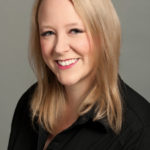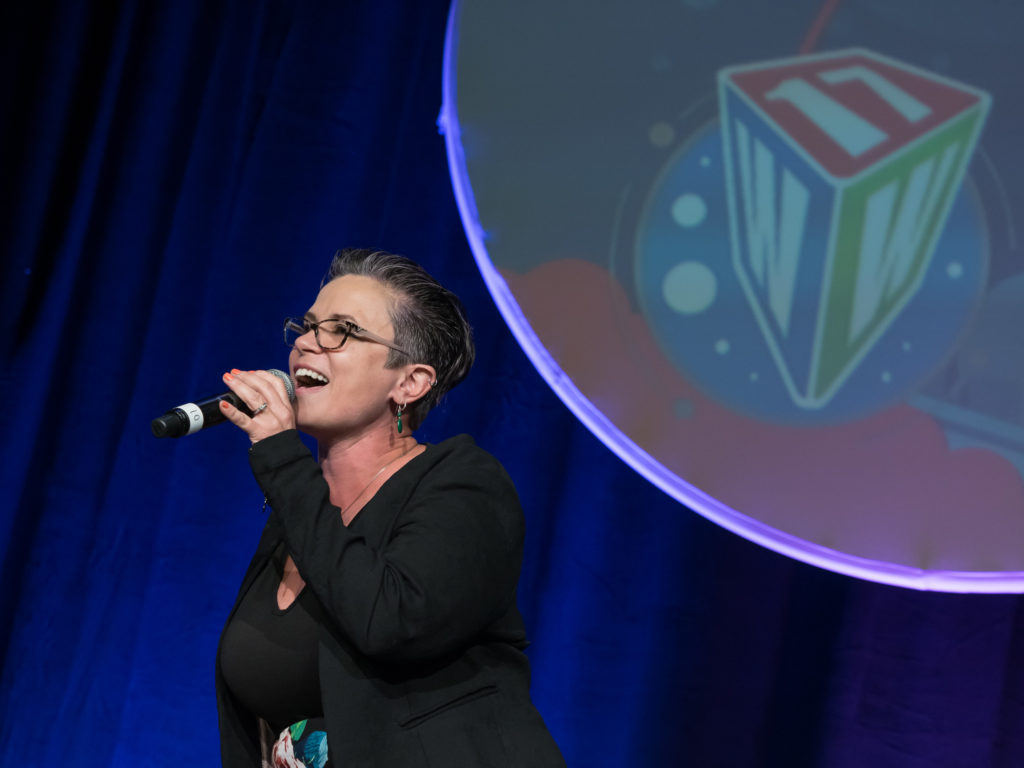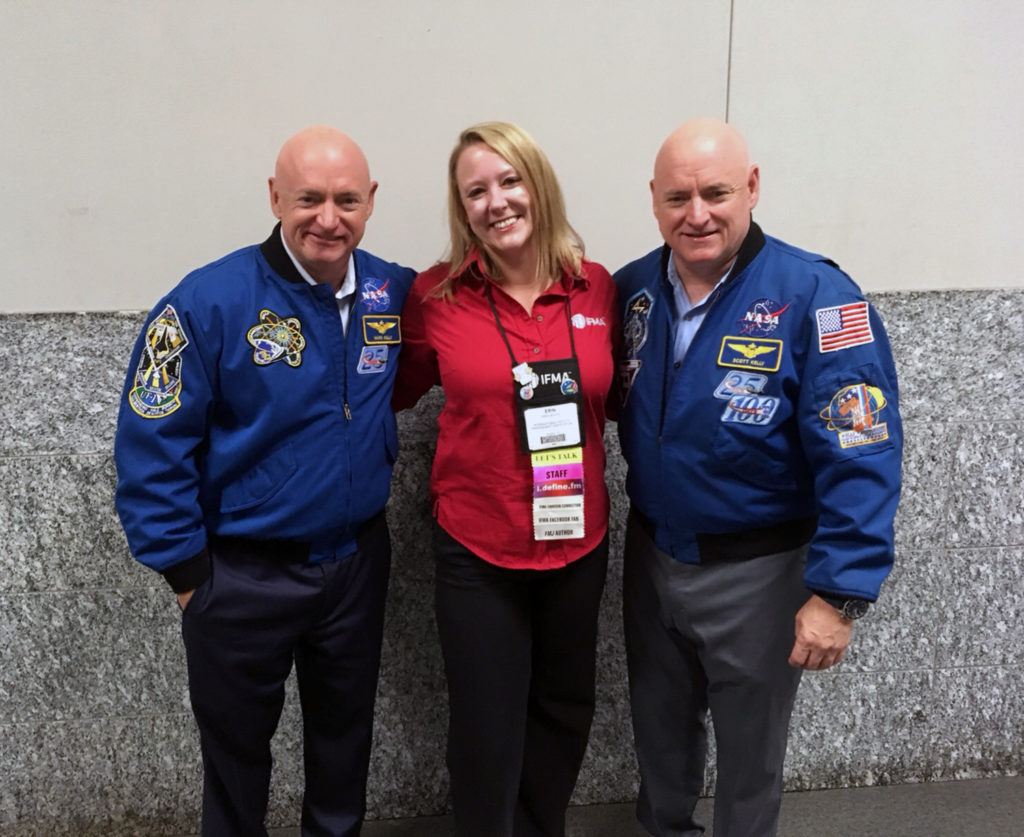It’s a Great Time to Be a Young Association Professional: Erin Sevitz on Working Hard, Being Agile and Leaving Your Mark
This month’s Corner Office features Erin Sevitz, director of communications for the International Facility Management Association (IFMA). Founded in 1980, IFMA is the world’s largest and most widely recognized international association for facility management professionals, supporting 24,000 members in more than 100 countries. This diverse membership participates in focused component groups equipped to address their unique situations by region (136 chapters), industry (16 councils) and areas of interest (six communities). Together, they manage more than 78 billion square feet of property and annually purchase more than US$526 billion in products and services.

Erin guides IFMA’s voice and messaging, leads the association’s social media presence and oversees IFMA’s web properties, magazine and online Knowledge Library. Previously, she was editor of IFMA’s FMJ magazine and held editorial and marketing positions with Naylor Association Solutions, advising professional and trade association clients from a variety of industries. About her career so far, Erin says, “Working in the association world wasn’t really something I intentionally set out to do, but associations have been a significant factor throughout my career and even before.” It was fantastic to speak with Erin this month and hear what she has learned since crossing over from the association partner side to the association side with IFMA.
Association Adviser: Tell us about your career path toward becoming director of communications for IFMA.
Erin Sevitz: Working in the association world wasn’t really something I intentionally set out to do, but associations have been a significant factor throughout my career and even before.
In college, I was part of the University of Florida Student Chapter of the American Marketing Association. When I graduated during the economic downturn in 2008, I ended up interning with the American Heart Association while job searching.
My first job was with Naylor, which gave me insight into the breadth of the association world. There truly is an association for every profession you can think of, and many more you don’t even know exist.
When I worked for Naylor I was based in Florida, but eventually I wanted to return to Houston. In looking for the next step in my career, I turned again to an association: the PR Society of America. While I wasn’t necessarily looking to work at an association, through the PRSA Houston Chapter job board, I found a posting for an editorial manager role with IFMA.
Since IFMA represents the facility management profession, the association models several FM best practices, including an open-office floorplan, flexible and remote working, and teleconferencing and video technology. I interviewed via Skype and didn’t meet the team in person or see the office until my first day of work.

Since then, I’ve had a few titles at IFMA, including editorial manager, senior manager of internal communications, and even a five-month term as interim vice president of marketing and communications.
AA: How do you manage all of your responsibilities for IFMA and ensure you’re not only surviving, but excelling?
ES: This can be a challenge, because the industry we represent is transforming, which means the association is, too. In that kind of environment, it’s important to be adaptable and open to change.
In 2016, IFMA entered a collaboration with another organization — the Royal Institution of Chartered Surveyors (RICS). They represent several professions across the life cycle of the built environment (construction, architecture, real estate, etc.), whereas our association focuses specifically on facility management. Collaborating with RICS ultimately allows our members to tap into the networks of those adjacent industries, but working so closely with a group that brought its own processes, priorities and terminology — as well as spelling, since RICS is headquartered in the U.K.— to the table was an incredible shift.
When our teams first met, for example, we had completely different concepts of membership in terms of who could join and how they became members. We quickly realized that we needed to outline and compare the key assumptions under which each organization’s implementation team was operating; in other words, develop a common understanding. Two years later, our counterparts in London feel like a seamless extension of our own team.
The process taught me to be agile in a way I hadn’t had to be before, and reinforced the importance of taking time to understand outside perspectives. This is a skill that I’ve applied not only in communications plans and messaging, but also in managing projects and teams.
AA: What made you believe you were ready to take on the director position?
ES: Isn’t there a saying about how leaders are made, not born? I was working as editor of IFMA’s magazine and leading staff and member communications. Over the past few years, we’ve grown our product offerings, so in 2017 IFMA decided to change our department structure to enhance support abilities. At the time, I had an incredible leader and mentor in my manager and was fortunate that she recommended moving me into the director role.
Part of my new responsibilities involved overseeing our web team, which manages our main website, as well as sites for our conferences and several sub-groups — nearly 50 in all. That was a huge learning curve for me because I come from a marketing communications rather than a technical background, so it took time to figure out the team’s needs and pain points.
I also acquired a team member who’s been with the association for 20 years and works from an out-of-state home office. I might have been intimidated by managing a remote employee, except that within my first year with IFMA, my boss moved to Baku, Azerbaijan for 10 months. I got used to being flexible with time zones pretty quickly.
AA: What are the most important decisions you make as a leader for your department, and as a leader within IFMA?
ES: One of the most important things I do is making sure tactics we’re implementing every day tie back to the association’s strategic vision. Connecting work back to our mission, vision and goals helps us prioritize how we spend our time.
This ties into our marketing and communications. As the lead of IFMA’s voice, I’m working to refocus our messaging as mission-driven rather than product-focused. Ensuring that our purpose is clear to and compelling for members and potential members is critical if we expect their support in how we deliver benefits.
AA: What are some of the benefits of working for an association in comparison to other organizations?
ES: It’s all about the members.
One of my favorite moments in my career happened at World Workplace, IFMA’s flagship conference and expo. I was walking the expo floor with our videographer and one of our chapter leaders, interviewing attendees about their experience with IFMA and at the event. We met up with some fabulous ladies from the IFMA Nashville Chapter, and one of them was so inspired that she burst into an impromptu song using Bonnie Raitt’s “Something to Talk About.” Instead of talking about love, she wanted to talk about IFMA!

We were so floored by her singing that I asked her to do a repeat performance on the main stage to kick off our closing keynote session with astronauts Mark and Scott Kelly the next day. She was incredibly excited for the opportunity and sang acapella in front of 2,500 people about IFMA. When I’m having a rough day, that kind of passion reminds me why I’m in this profession.
AA: What would you say to a young professional, or college graduate, considering a career in associations?
ES: Working in an association will allow you to gain experience across several operational areas. At IFMA, our staff of about 60 people serves members around the world, which means we work very collaboratively to get the job done. It’s almost like a start-up mentality where everyone is highly committed and does what it takes for the organization to succeed, regardless of job titles or official roles and responsibilities.

Your colleagues (and in some cases, member volunteers) may even become like a second family, because they care so deeply about what the association does. This can be true whether you’re working for a philanthropic/charitable group or a standard professional or trade association.
Because of this, you’ll work hard, but have a tremendous opportunity to put your ideas into action and leave your mark on the products and services you touch. This translates into a significant impact on the industry your association represents, whether you’re helping to get a piece of legislation passed or improving the way your members network and share information.
AA: What do you think are some of the biggest challenges facing young professionals in associations today?
ES: It’s a great time to be a young professional in the association space. There’s been a huge proliferation of association management software and other tech tools in recent years, so digital natives have an advantage in the industry.
However, with great technology comes great responsibility. Associations are no less immune to data breaches and privacy issues than industry giants, but our ability to mitigate risk can be more limited due to resource constraints. As a global organization, IFMA’s had to pay close attention to the EU General Data Protection Regulation and take action to move our European chapters, and the association as a whole, toward compliance. I think we’ll see other regions follow suit in more closely regulating data use, and associations will have to keep up with these changes to ensure they protect members’ personal identifying information and privacy.
AA: What are you doing to ensure you continue to grow and develop as an association professional?
ES: I’m fortunate that IFMA recognizes the value of ongoing professional development — we require all staff to complete a minimum of 25 hours of qualifying training each fiscal year. I keep up with reading (favorite books include “Contagious: Why Things Catch On” by Jonah Berger and “Decoded: The Science Behind Why We Buy” by Phil Barden), watch webinars and follow influencers in the association and marketing communications spaces. In addition, I’ve been actively involved in the Houston Society of Association Executives and in my local chapter of the International Association of Business Communicators.
Something else that’s been valuable in developing my association management skills is working with the volunteer leaders of IFMA’s sub-groups: local chapters, industry councils and topic-focused communities (collectively called components). As volunteers with highly demanding day jobs, leaders look to IFMA staff for resources on how to drive engagement within their components — we create toolkits, offer webinars and provide training. In teaching them to be successful, I’ve sharpened my own skills.
Hear more from Erin on Episode 4 of The Association Adviser Podcast:
[soundcloud url=”https://api.soundcloud.com/tracks/437092785″ params=”color=#69d1ee&auto_play=false&hide_related=false&show_comments=true&show_user=true&show_reposts=false&show_teaser=true” width=”100%” height=”166″ iframe=”true” /]
Erin Sevitz is Director of Communications for the International Facility Management Association (IFMA). She guides IFMA’s voice and messaging, leads the association’s social media presence and oversees IFMA’s web properties, magazine and online Knowledge Library. Previously, she was editor of IFMA’s FMJ magazine and held editorial and marketing positions with Naylor Association Solutions, advising professional and trade association clients from a variety of industries.
Sevitz is a University of Florida graduate with bachelor’s degrees in English and French and tweets on leadership, branding and the workspace @ESevitz. Connect with her on LinkedIn at www.linkedin.com/in/erinsevitz.

